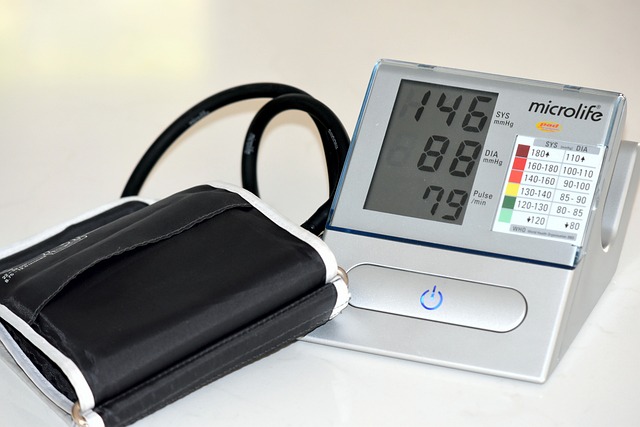A testosterone blood test is a simple yet powerful diagnostic tool for suspected hormonal imbalances, especially low T levels. Guided by healthcare professionals, it involves fasting and drawing a morning blood sample analyzed for testosterone concentration (300-1000 ng/dL or 10.4-34.7 nmol/L). Accurate interpretation is key to addressing health issues related to energy, muscle mass, bone density, sexual function, and mental well-being, preventing long-term complications like osteoporosis and cardiovascular problems through timely treatment.
“Uncover the power of a reliable testosterone blood test—a pivotal tool in diagnosing hormone imbalances. This comprehensive guide delves into the essential role of testosterone within the body, highlighting signs and symptoms that may indicate an imbalance. We explore the process, from preparation to interpretation of results, ensuring you grasp the significance of numbers. Learn how accurate diagnosis enables effective treatment, fostering optimal health and well-being.”
- Understanding Testosterone: The Hormone and Its Role in the Body
- When to Consider a Testosterone Blood Test
- The Process: How Is the Test Conducted?
- Interpreting Results: What Do the Numbers Mean?
- Benefits of Accurate Diagnosis and Treatment for Hormonal Imbalances
Understanding Testosterone: The Hormone and Its Role in the Body
When to Consider a Testosterone Blood Test
If you suspect an imbalance in your hormone levels, particularly concerning low testosterone, a blood test can be a crucial step in diagnosing and addressing the issue. Many individuals experience symptoms like decreased energy, muscle mass loss, or changes in sexual function that could indicate hormonal imbalances, making a testosterone blood test a valuable tool for evaluation.
This test is especially recommended if you’re an older adult experiencing age-related hormone changes or younger men with potential signs of low testosterone. It’s also relevant for athletes or individuals concerned about their health due to physical activity, as well as those undergoing treatment for conditions that might affect hormone production. A healthcare professional can determine the optimal time to conduct this test based on individual symptoms and medical history.
The Process: How Is the Test Conducted?
The process of a reliable testosterone blood test involves a straightforward procedure designed to accurately diagnose hormone imbalances. Typically, a healthcare professional will take a blood sample from a patient’s vein, usually in the morning after fasting for the previous night. This is crucial as food and certain medications can affect testosterone levels, ensuring consistency for accurate results. The sample is then sent to a laboratory for analysis where specialized equipment measures the concentration of testosterone present in the blood.
This test offers a non-invasive method to assess testosterone levels, providing valuable insights into an individual’s hormonal health. The procedure is simple, quick, and often conducted in a clinical setting, making it easily accessible for those seeking to understand their hormone imbalances.
Interpreting Results: What Do the Numbers Mean?
When interpreting the results of a testosterone blood test, understanding what the numbers mean is crucial for diagnosing hormone imbalances. The reference range for total testosterone typically varies slightly between labs but generally falls between 300-1000 nanograms per deciliter (ng/dL) or 10.4-34.7 nanomoles per liter (nmol/L). Levels below this range may indicate low testosterone, while levels significantly above it could signal potential health concerns related to excess hormone production.
It’s important to remember that individual variations exist, and factors like age, lifestyle, and overall health can influence testosterone levels. For instance, younger individuals tend to have higher testosterone readings than older men due to natural hormonal fluctuations. Therefore, a comprehensive evaluation by a healthcare professional is essential to ensure accurate interpretation of the results from a testosterone blood test.
Benefits of Accurate Diagnosis and Treatment for Hormonal Imbalances
An accurate diagnosis through a reliable testosterone blood test is crucial for identifying hormone imbalances, which can significantly impact overall health and well-being. Early detection enables individuals to take proactive measures and receive appropriate treatment, ensuring optimal hormonal levels. This is particularly important for testosterone, as it plays a vital role in various physiological processes, including energy levels, muscle mass, bone density, and sexual health.
By addressing hormone imbalances, individuals can experience numerous benefits. These include improved physical performance, increased mental clarity, better mood regulation, and enhanced overall quality of life. Moreover, effective treatment can help prevent potential long-term health complications associated with hormonal imbalances, such as osteoporosis or cardiovascular issues.
A reliable testosterone blood test is a powerful tool in diagnosing hormone imbalances, offering insights into an individual’s overall health and well-being. By understanding the importance of this test and interpreting results accurately, individuals can take control of their hormonal balance and reap the benefits of improved quality of life. Accurate diagnosis and tailored treatment plans can significantly enhance energy levels, boost mood, and promote optimal physical performance, making the testosterone blood test a game-changer in managing hormone-related issues.
